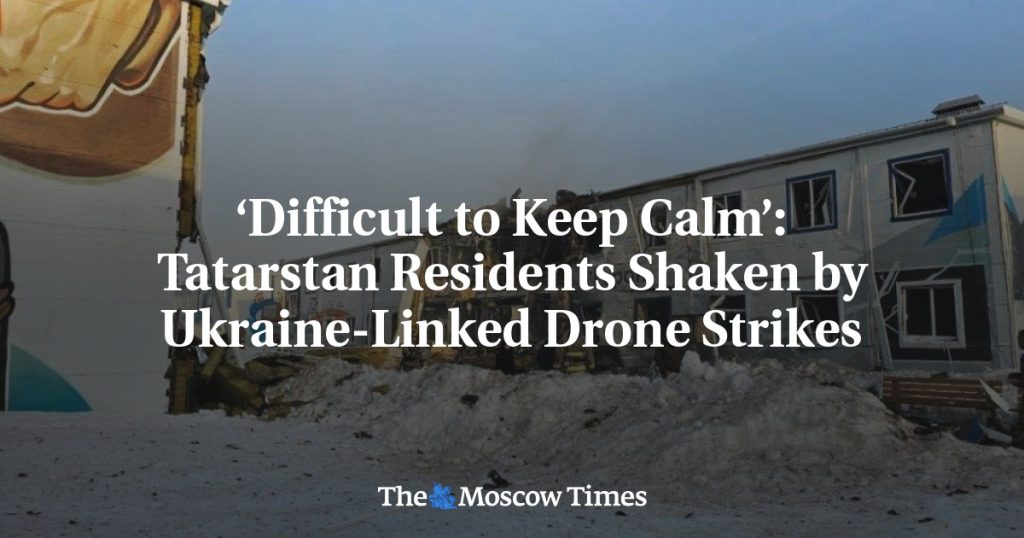The twin drone strikes on industrial sites in Tatarstan have caused fear and panic among residents of the region, as they were the farthest-reaching strikes on Russian territory since the start of the war in Ukraine. At least 13 people were injured, including students who worked at a college where Iranian Shahed drones were being assembled. These students reportedly faced threats of expulsion and had to work under inhumane conditions, which has raised concerns about the safety and treatment of workers at the factory.
The head of Tatarstan, Rustam Minnikhanov, issued an official confirmation of the attacks and called for calm among residents, urging them not to panic. Despite his efforts to reassure the population, fear has already taken root among Tatarstan’s residents, with many expressing concerns about their safety and the lack of effective measures to protect them from future attacks. There is also speculation about why the authorities did not respond to known warnings about potential threats to the region.
While media reports have suggested that Ukraine may be responsible for the drone attacks, both Ukrainian officials and the head of Tatarstan have refrained from directly attributing blame. However, political experts believe that the attacks may be used by Russian authorities to stoke anti-Ukrainian sentiment and discredit decolonial and indigenous activists who support Ukraine in its conflict with Moscow. Despite attempts to provoke public outrage, it is unlikely that the attacks will result in widespread hatred towards Ukraine among the Russian population due to the routine nature of conflict-related events.
The attacks have prompted concerns among residents of Tatarstan and neighboring regions about the possibility of further strikes on industrial sites, particularly oil refineries and chemical plants. The fear of additional attacks has led to calls for increased security measures and preparation for potential drone strikes in the future. Amidst the uncertainty and anxiety surrounding the drone attacks, there is a growing sense of vulnerability and unease among residents in Tatarstan and beyond, as they grapple with the implications of the unprecedented strikes on their doorstep.
Overall, the drone strikes in Tatarstan have unnerved the region’s residents and raised questions about the safety of industrial workers and the effectiveness of security measures in the face of evolving threats. While the full impact of the attacks is yet to be determined, the fear and uncertainty that have permeated the region suggest a broader need for increased security measures and preparedness for potential future attacks. As Tatarstan and neighboring regions brace for potential threats, the long-term implications of the drone strikes on their sense of security and well-being remain to be seen.


